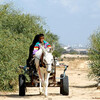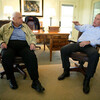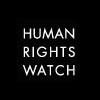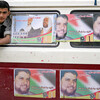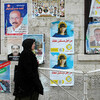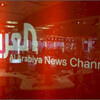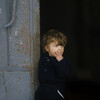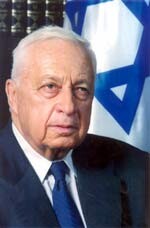
The whitewashing of Ariel Sharon
8 January 2006
AS ARIEL SHARON’S career comes to an end, the whitewashing is already underway. Literally overnight he was being hailed as “a man of courage and peace” who had generated “hopes for a far-reaching accord” with an electoral campaign promising “to end conflict with the Palestinians.” But even if end-of-career assessments often stretch the truth, and even if far too many people fall for the old saw about the gruff old warrior miraculously turning into a man of peace, the reality is that miracles don’t happen, and only rarely have words and realities been separated by such a yawning abyss. Read more about The whitewashing of Ariel Sharon
